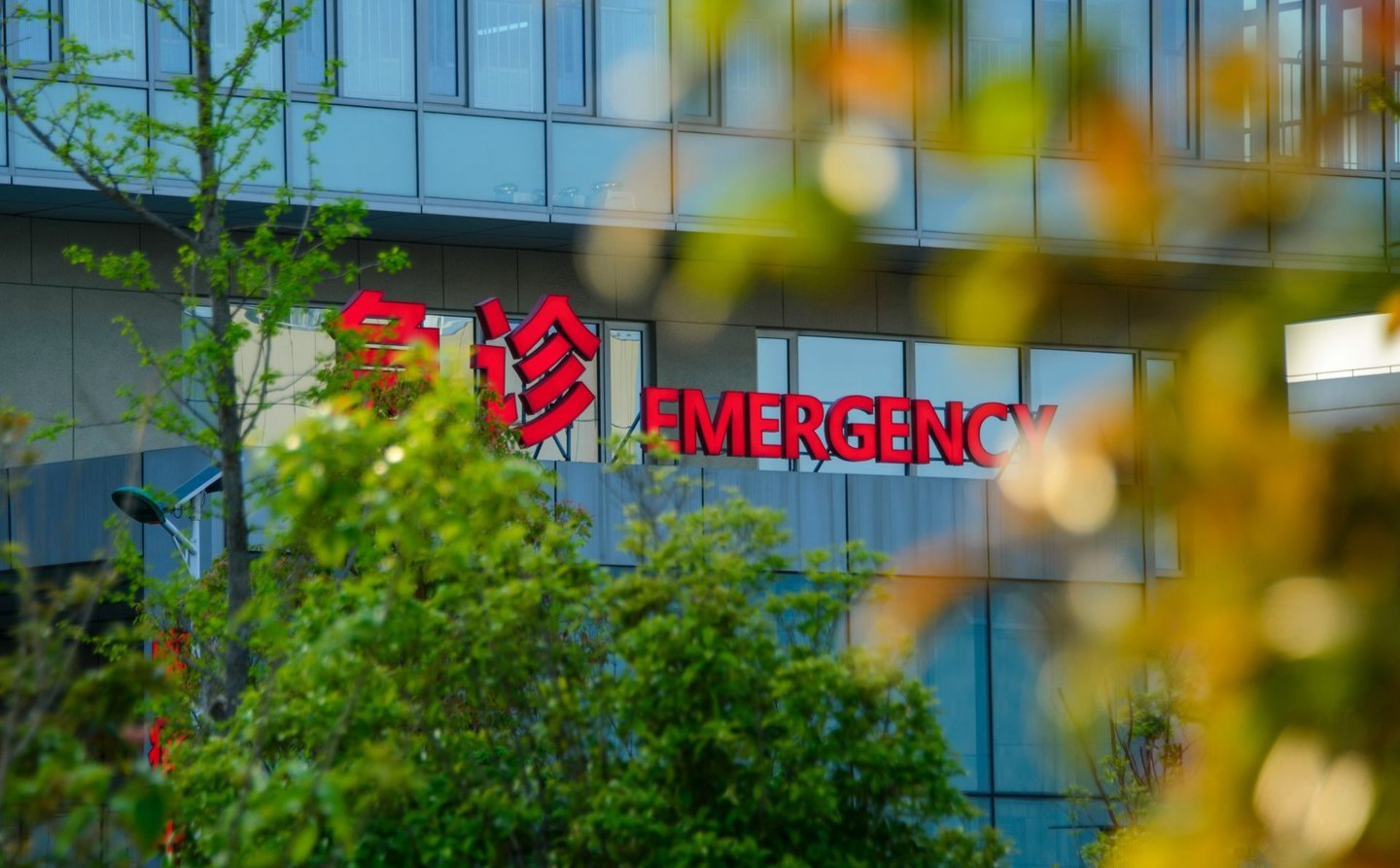Navigating Expat Medical Insurance in China: A Vital Guide for Peace of Mind
Julie Marx
12/17/20246 min read
Without proper medical insurance, expats in China may face high costs in case of a medical emergency. Private healthcare in China can turn prohibitively expensive. And you may even be refused medical treatment altogether if you cannot pay on the spot.
Health insurance is not the most ‘sexy’ topic, and I have heard time and again from fellow expats and from my clients that they did not want to bother with it. Especially if their employer does not provide any coverage and they have to choose a provider themselves. Unfortunately, I also know of a case where an acquaintance got into a traffic accident and his insurance would not cover the cost of the repatriation for him to get adequate medical treatment in the form of follow-up surgery and rehabilitation. We ended up fundraising money for him to be sent back to his home country. Sub-optimal, to say the least.
This is why understanding insurance options before anything happens (and ideally before you ever relocate to China) is so crucial
The Chinese Healthcare System: What Expats Need to Know
Public Healthcare
Where other countries have a network of general practitioners (GPs) or family doctors, the Chinese health system primarily focuses on hospital care at government hospitals. Many of the costs of the public hospitals are covered by public health insurance, whereas private hospital visits are not. Public health insurance is part and parcel of any employee’s mandatory social security contributions paid for by both employee and employer.
Public hospitals are extremely crowded and have long wait times for treatments. That is why a visit to a public hospital in China is a group activity. One person goes to stand in line to pull a number to get the patient checked in. They pay a fee, then get the person who needs medical attention registered. Meanwhile, another person attends the patient for getting sorted in the emergency room. First, a general doctor will see the sick person to gauge which area of medicine they need. Then, a specialist doctor in the emergency room will attend to decide whether direct medical attention can be given then and there or more tests and treatments are needed in one of the other departments. Hospitals tend to be extremely busy, and queues can be long. All medical treatment works on a pay-as-you-go basis, with some of it covered by insurance, most of it not. Which means that you as a foreigner will probably have to pay everything upfront and then claim costs from your international health insurance (if you have one—hint, hint, hint) afterwards.
Private Healthcare
For the reasons listed above, many expats prefer private hospitals or international clinics. Those tend to have more English-speaking doctors and nurses, and if the medical issue is something the GP cannot handle or needs test results for that cannot be obtained within the clinic, the nurse will typically accompany the patient to the most appropriate public hospital to get help there. The nurse will be very helpful to navigate the maze of public hospitals for signing you in, getting specialist appointments, pre-paying treatments, and getting and interpreting test results for you.
All of this special service has its price tag, of course. Costs for private hospitals or international clinics can range from 500 CNY (about 70 USD) for a simple consultation to tens of thousands of yuan for surgery.
This means that private healthcare costs are rarely affordable without a good international insurance. A simple example: even a routine teeth cleaning in a private dentistry clinic may cost around 800-1000 CNY (110-140 USD). You will get your teeth cleaned in a serene and clean environment, with attentive English-speaking staff that cater to your needs. At a public dental hospital, you may pay as little as 100 CNY (14 USD) for the same service. But it will mean standing in line, dealing with crying babies waiting alongside you, possibly dirty floors and walls, people crowding into your treatment area, etc. What really shocked me when I first arrived in China was that in public hospitals, there are no individual treatment rooms, but only curtains separating one patient from the other. And fellow patients or accompanying family walk in before it is their turn and accost the doctor while that same doctor is still treating you. Of course, once people see it is a foreigner getting treatment, they often stop in their tracks to stare, ask questions, or comment. While that may be fine while you are getting your teeth cleaned, it can be very uncomfortable when you are already in pain and waiting for a diagnosis on an unexplained medical issue.
All of the above may make you want to consider international medical insurance. But how?
Key Features to Look for in Expat Medical Insurance
To avoid stressful scenarios and ensure proper care, it is vital to select the right medical insurance plan. Here are the features you should prioritize:
Access to Private Hospitals and International Clinics: Make sure your policy covers private facilities where English-speaking doctors and more personalized care are available. Ideally, your policy has direct billing agreements with international clinics and private hospitals in the town where you live.
Emergency Evacuation Coverage: This is critical if you live outside major cities. In case of a severe accident or illness, you may need to be airlifted to Beijing, Shanghai, or even your home country for advanced treatment.
Example: A colleague living in a tier-2 city was flown to Europe after a serious injury for treatment in his home country, with costs entirely covered by his insurance.
Outpatient and Specialist Care: Policies with outpatient coverage allow you to consult specialists or receive treatment for less severe health issues without massive out-of-pocket costs.
Maternity and Dental Coverage: These are especially important for families or those planning to start one while in China. Having a baby in China can easily cost upwards of 20,000 CNY, so you want to make sure those costs are covered if you are planning to add to your family.
Flexibility for Cross-Border Travel: Consider plans that include coverage for medical expenses in nearby regions like Hong Kong or Southeast Asia. Or - if you frequently travel between China and your home country - find a policy that covers you across the globe.
Types of Expat Medical Insurance Plans
There are three main options to consider when choosing the perfect medical insurance plan for your needs: international, China-specific, or corporate.
1. International Health Insurance
This option offers comprehensive global coverage. It is ideal for frequent travelers or expats with multiple postings in the foreseeable future, not just in China.
Example Providers: Bupa Global, Cigna, Allianz.
2. China-Specific Plans
Another choice would be to go for a plan tailored to the unique challenges of the Chinese healthcare system. This type of insurance is often more affordable than international plans.
Example Providers: Ping An, AXA Tianping.
3. Corporate Insurance Policies
If you are being sent to China from the headquarters of your company, your employer may already have a group health plan in place to support you as well as their other expat employees. However, these plans may have limited coverage.
Pro Tip: Check if your corporate policy includes family members and if add-ons like dental or maternity care can be included. It may also be advisable to combine the corporate insurance plan with a China-specific one.
Practical Tips for Expats
Here are some practical tips to navigate China’s healthcare hurdles.
Know Your Nearest Hospital: Whether public or private, identify the closest healthcare facility to your home. Save its emergency number and learn the local procedures for admission. If it is a private hospital or international clinic, they may also have a 24/7 hotline (maybe even English-speaking).
Keep Documents Handy: Always carry your insurance card, passport, and a list of emergency contacts.
Join Expat Communities: Local WeChat groups can be an invaluable resource for recommendations on doctors and hospitals. If you don’t know how to join any groups, start by adding julie_marx as a contact to start with so I can support.
Prepare for Emergencies: Have a bilingual friend or service on call who can assist in navigating medical situations where language barriers exist.
In conclusion: Medical insurance might not be the most exciting part of planning your life in China, but it is one of the most critical. Ensuring you have a comprehensive policy can save you from financial and emotional distress in emergencies. Don’t wait until it’s too late—research your options, compare providers, and make informed decisions. If you’re unsure where to start, consult a broker who specializes in expat health insurance.
If you enjoy receiving in-depth information on preparing an expat assignment to China, consider jumping onto our email list. We regularly publish content here on the site and on LinkedIn.



Need Help?
Thinking about taking the plunge but unsure where to start? Need help setting or sustaining your language-learning goals? Consider working with a coach. If you’re curious about coaching, check out our article, “What is Coaching,” and book a free needs assessment call.
My office
Ji’an Road 42-1, No. 2-3
Heping District Shenyang City Liaoning Province CHINA
Germany:
In der Zennwies 2, 66629 Freisen, Germany


Intercultural Experts
